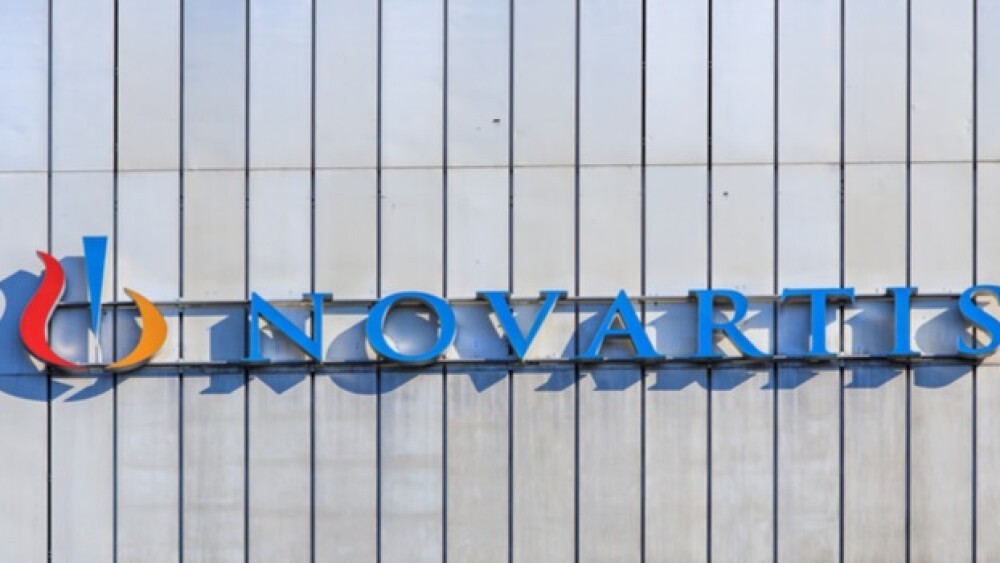Novartis will quickly roll Mayzent out to U.S. physicians. The Swiss pharma giant plans to make the drug available within one week of the FDA approval.
Denis Linine / Shutterstock
Swiss pharma giant Novartis snagged regulatory approval in the United States for its new multiple sclerosis treatment Mayzent (siponimod) and plans to have it available for prescribers and their patients by next week.
This morning, Novartis announced the U.S. Food and Drug Administration (FDA) approved siponimod, which will be sold under the name Mayzent, for the treatment of adults with relapsing forms of multiple sclerosis, including secondary progressive multiple sclerosis (SPMS) with active disease, relapsing-remitting multiple sclerosis (RRMS) and clinically isolated syndrome (CIS). Novartis used a voucher to expedite approval of Mayzent after the FDA accepted the company’s New Drug Application in October.
The approval of Mayzent marks the first treatment specifically approved for patients with active secondary progressive multiple sclerosis (SPMS) in more than 15 years. SPMS is a debilitating form of multiple sclerosis (MS) characterized by progressive and irreversible neurological disability. Novartis said the drug will be available to prescribers within a week of the approval but noted that some prescribers may take longer to implement it as part of their practice. Novartis did not disclose pricing information in its announcement, but Reuters reported the price will be $88,000 per year.
There are approximately 2.3 million people affected with multiple sclerosis worldwide. SPMS is characterized by gradual worsening of neurological function over time, which leads to a progressive accumulation of disability that is largely disassociated from relapses. SPMS can severely affect patients’ abilities to carry out everyday activities. Novartis noted that more than 80 percent of people with relapsing-remitting MS, which is the most common form of the condition at diagnosis, go on to develop SPMS, with or without relapses.
The approval of Mayzent bolsters Novartis’ MS pipeline, which includes the blockbuster treatment, Gilenya, which is expected to lose patent protection soon. In addition to Gilenya Novartis also markets Extravia as a treatment for relapsing forms of the disease.
Paul Hudson, chief executive officer of Novartis Pharmaceuticals, said one of the most important treatment aims for multiple sclerosis is attempting to delay disability progression and preserving cognition.
“With Mayzent, SPMS patients with active disease will have access to the first effective oral therapy directed towards disease progression, even when MS transitions to a stage where deterioration is less dependent on the usual relapse activity. Mayzent is a testament to the Novartis mission to reimagine medicine. We are delighted that our ongoing commitment to stop MS has led to a much-awaited treatment for these patients in need,” Hudson said in a statement.
The FDA approved Mayzent based on strong data from the Phase III EXPAND trial that showed siponimod-dosed patients gained a significant benefit in cognitive processing speed. Novartis also demonstrated that Mayzent generated significant improvements in patients, including a 21 percent decrease in the risk of disease progression. The Phase III results also showed that siponimod, a selective modulator of specific subtypes of the sphingosine-1-phosphate (S1P) receptor, resulted in a 23 percent reduction of brain volume loss, limited T2 lesion volume from increasing by a mean of 79 percent, cut the annual relapse rate by 55 percent and showed reduced disease progression to about 26 percent at six months.
During the trial, the most common adverse reactions included headache, hypertension, and transaminase increase.
At the same time Novartis filed for approval in the U.S., the company also submitted a Marketing Authorization Application to the European Medicines Agency. Novartis said it anticipates a ruling in late 2019 by the EMA. The company anticipates additional regulatory action in Switzerland, Japan, Australia and Canada this year.





